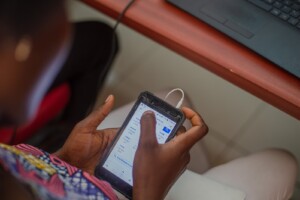UNICEF/Save the Children: One third of Sudanese children out-of-school
While Sudan has postponed the start of the new school year to October 2, as more than 600 schools are affected by the heavy rainfall of last month, UNICEF and Save the Children reported that nearly seven million children in Sudan are not going to school.
The Sudanese Ministry of Education yesterday announced the postponement of the start of the new school year from September 18 to October 2, due to the circumstances in a large number of states affected by torrential rains and floods.
 Nuba children in a community school in a poor suburb of Omdurman, February 2020 (RD)
Nuba children in a community school in a poor suburb of Omdurman, February 2020 (RD)
While Sudan has postponed the start of the new school year to October 2, as more than 600 schools are affected by the heavy rainfall of last month, UNICEF and Save the Children reported that nearly seven million children in Sudan are not going to school.
The Sudanese Ministry of Education yesterday announced the postponement of the start of the new school year from September 18 to October 2, due to the circumstances in a large number of states affected by torrential rains and floods.
Education Minister Mahmoud Sirelkhatim El Houry said that 623 schools have been affected during this year's rainy season.
About 6.9 million girls and boys, one in three school-aged children, however, do not go to school in Sudan, the UN Children's Fund (UNICEF) and the international aid organisation Save the Children in Sudan said in a joint press statement on Monday.
“A further 12 million will have their school years heavily interrupted by a lack of sufficient teachers, infrastructure, and an enabling learning environment to make them reach their full potential,” the statement reads.
“With the exacerbating socio-economic situation, recurring conflicts, and prolonged COVID-19 school closures, once children drop out of school, the chances of girls and boys returning to school are low. Girls are especially vulnerable: evidence suggests that the economic crisis is deepening gender inequalities in Sudan, especially among adolescent girls.
“To prevent further learning loss, reopening of schools, and offering alternative education opportunities for children who missed many years of school is a top priority,” the organisations say. “Without urgent action, the learning crisis in Sudan will become a generational catastrophe.”
UNICEF and Save the Children further point to the rapidly increasing figures of “learning poverty” in the world.
They therefore call on the Sudanese government “to reopen schools as soon as possible, keep the schools open for the entire academic year, ensure no schools are occupied by armed actors, and facilitate additional alternative education opportunities to make sure no child is left behind.
“We call on all stakeholders – foremost the Government – to ensure sufficient funding for education is available, including for teacher salaries and school feeding programmes.”











 and then
and then